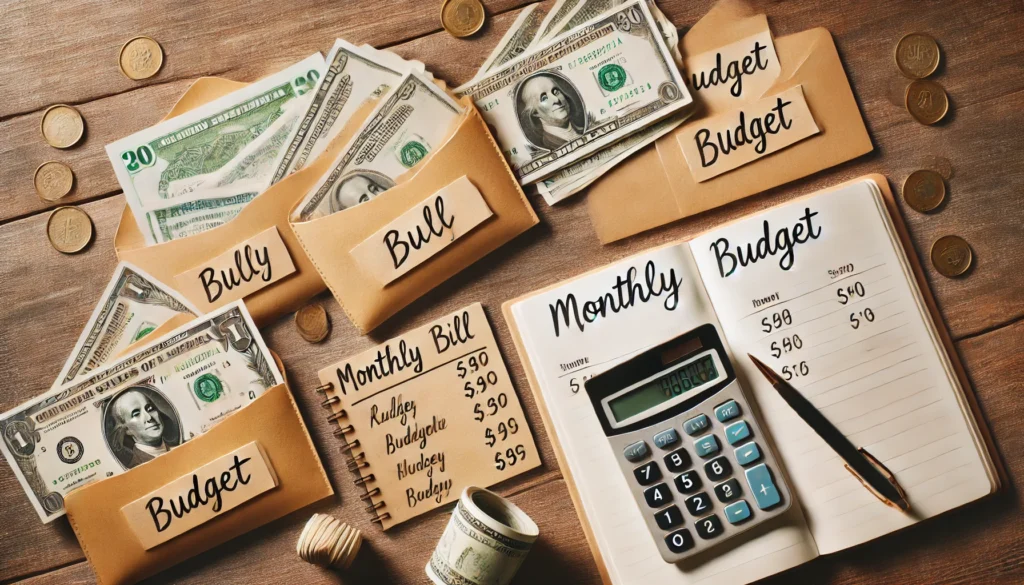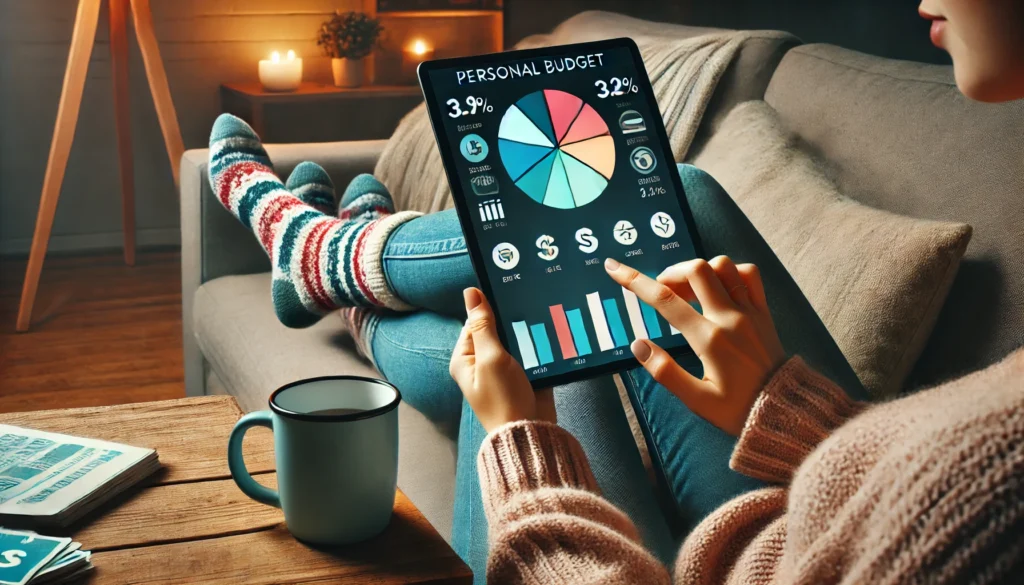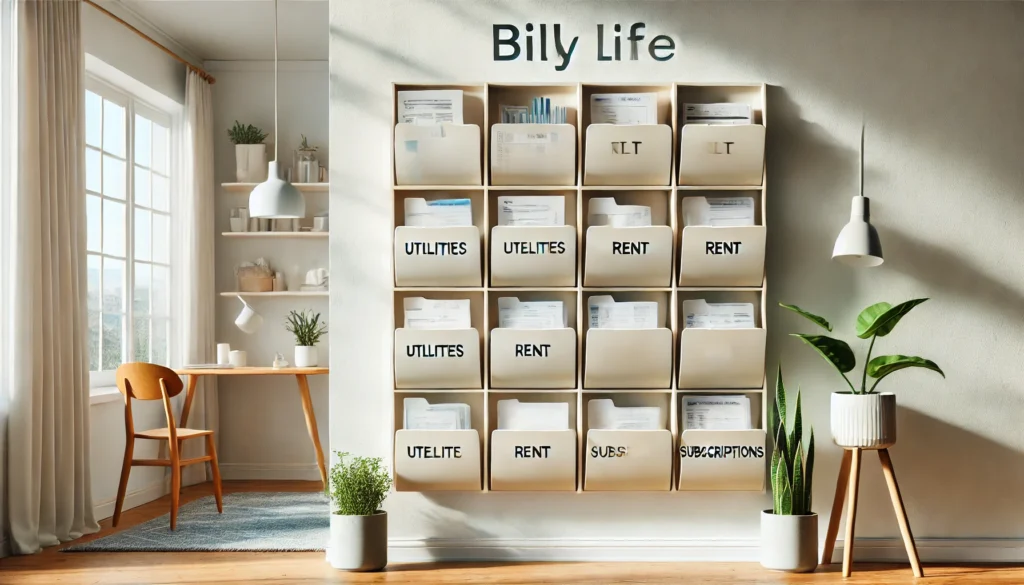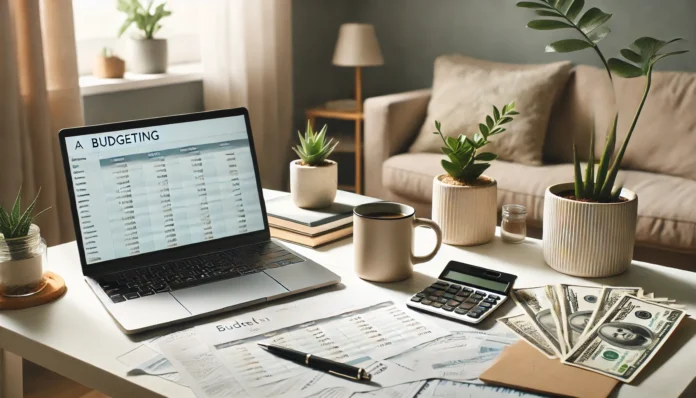Staying on top of your monthly expenses can feel like an uphill battle, especially in a world where every service—from streaming subscriptions to utility bills—competes for your attention and your bank balance. For those embracing a frugal lifestyle, knowing the best way to keep track of bills is more than just good financial hygiene; it’s a cornerstone of long-term stability and peace of mind. Learning how to keep track of bills effectively doesn’t just prevent late fees and overdrafts—it also gives you full visibility into your spending patterns, enabling smarter, more intentional financial decisions. As more individuals seek ways to cut costs and stretch every dollar, the conversation around handling bills is evolving from a mundane chore into a strategic opportunity to master financial clarity and discipline. Whether you’re new to frugal living or a seasoned saver, understanding the best way to pay bills each month is a skill that will continuously pay dividends.
You may also like: 10 Genius Frugal Living Hacks: Effective Ways to Save Money on Household Bills
This article explores practical, real-world strategies tailored specifically for those who value financial mindfulness. From digital tools that streamline your billing schedule to psychological tricks that help shift spending habits, you’ll find in-depth advice that goes beyond the obvious. We’ll unpack expert techniques that demonstrate how frugality isn’t about deprivation—it’s about resourcefulness. Whether you’re juggling rent, credit card payments, or fluctuating utility bills, the journey toward financial control starts with a system. And this system begins with learning the best way to keep track of bills.

Why Tracking Bills Matters More Than Ever
In today’s fast-paced, subscription-driven economy, automated withdrawals and digital transactions can create an illusion of control. You may think everything is under wraps until an overdraft alert surprises you mid-month. This phenomenon underscores why understanding how to keep track of bills is crucial. Financial oversight isn’t merely about knowing what’s due and when—it’s about establishing a lifestyle that minimizes waste, anticipates irregular expenses, and builds financial resilience. The growing complexity of household finances makes handling bills a non-negotiable aspect of frugal living.
More importantly, not tracking bills invites unnecessary stress. That mental burden—the constant wondering whether a payment slipped through the cracks—can chip away at your emotional well-being. On the other hand, when you’re confident that your bills are under control, it clears the mental runway for more strategic thinking. You gain the cognitive freedom to plan for savings goals, emergency funds, or debt elimination strategies. It transforms your relationship with money from reactive to proactive.
Moreover, consistently keeping track of your bills trains your financial intuition. It helps you identify patterns in your spending that aren’t always visible at a glance. For instance, you might notice seasonal spikes in your electric bill or subscription services that you no longer use but still pay for. Such insights enable better decision-making, letting you prune unnecessary expenses and redirect funds toward meaningful goals. In the context of frugal living, where every dollar must be maximized, these micro-adjustments can add up significantly over time.
The Psychological Benefits of Bill Management
Beyond dollars and cents, there’s a psychological payoff to finding the best way to keep track of bills. A structured approach to handling bills imparts a sense of control in a world that often feels unpredictable. It fosters a habit loop where planning, discipline, and reward work in unison. Each paid bill becomes a micro-win that reinforces your capability to manage your finances wisely.
This sense of mastery plays a critical role in long-term motivation. Many people abandon budgeting and frugal living strategies because they feel overwhelming or punitive. But when you start small—by simply organizing your bills and tracking due dates—you generate momentum. This momentum can carry you through more challenging financial changes like downsizing, debt repayment, or large savings goals.
Moreover, maintaining a clear picture of your obligations helps reduce decision fatigue. When you know exactly which bills are coming up and how they fit into your cash flow, you remove the daily guesswork around discretionary spending. You’re no longer haunted by the uncertainty of whether you can afford a dinner out or an impromptu trip. The financial clarity allows for guilt-free spending within limits—a core principle of sustainable frugal living.
Why Most People Fail to Track Their Bills Effectively
Despite its importance, many people struggle with handling bills consistently. Part of the challenge lies in the fact that bill management requires a blend of time management, organization, and sometimes even emotional discipline. Life gets busy, distractions arise, and without a system, it’s easy for even the most responsible individuals to miss a due date or miscalculate a balance.
One major pitfall is overreliance on memory. People often assume they’ll remember when something is due, especially if the amounts are recurring. However, memory is a poor substitute for structure. With so many financial commitments competing for your attention—cell phone bills, credit cards, rent, insurance premiums, and more—depending solely on recall is setting yourself up for failure.
Another problem is the disconnect between income timing and bill due dates. If your paycheck hits your account on the 1st and your biggest bills are due on the 28th, it’s all too easy to spend freely early in the month, leaving yourself short later. Without a detailed view of your cash flow and due dates, you may end up relying on credit cards or overdraft protection to cover the gap, leading to interest charges or fees that erode your financial progress.
Lastly, emotional avoidance plays a role. Many people feel anxiety or shame around money, especially if they’ve made financial missteps in the past. This discomfort can lead to procrastination. But ignoring bills doesn’t make them go away—it simply allows them to accumulate interest or late penalties. Creating a calm, organized space to deal with your finances—even if only once a week—can help neutralize these negative emotions.
Digital Tools That Make Bill Tracking Easier
In the digital age, the best way to keep track of bills often involves leveraging technology. Today’s apps offer more than just reminders—they provide a comprehensive view of your financial ecosystem. Tools like Mint, PocketGuard, or Prism automatically sync with your bank accounts and credit cards, tracking due dates and alerting you to upcoming bills. By automating reminders and categorizing expenses, these platforms help you shift from reactive to proactive financial behavior.
For those focused on frugal living, free or low-cost apps that streamline the process without adding to your monthly expenses are ideal. Many frugal families swear by the use of spreadsheets in combination with Google Calendar to monitor due dates and cash flow. Color-coded tabs, drop-down menus for recurring expenses, and graphs that show income versus outflows can all make the process visually intuitive and rewarding. The more you tailor the tool to reflect your financial landscape, the more empowered you’ll feel.
Another underrated digital tool is your bank’s bill pay feature. Many institutions offer the ability to automate recurring payments directly through your checking account. While automation shouldn’t replace awareness, it can significantly reduce the risk of missed payments and associated fees. Setting bills to auto-pay while tracking them on a dashboard ensures that your financial system remains efficient and low-maintenance.
Choosing the Right System for Your Lifestyle
Not every system works for every person, and the best way to pay bills each month varies depending on your habits, preferences, and goals. For some, digital automation offers peace of mind, while others find comfort in hands-on tracking methods like planners or cash envelopes. The key is to choose a system that aligns with your lifestyle and is sustainable over the long term.
If you’re someone who prefers physical interaction with your budget, a financial binder or dedicated budgeting journal may be your best bet. These tools can house monthly bill calendars, payment checklists, and budget trackers, all of which can be customized to suit your needs. Many frugal individuals find that writing things down reinforces accountability and increases financial mindfulness. It’s also easier to recognize patterns or mistakes when you’re reviewing your numbers regularly by hand.
Hybrid systems—blending digital and analog—offer a flexible solution. You might use an app for daily spending tracking while maintaining a paper calendar for bill due dates. Or you might automate your fixed bills but manually review and pay variable ones. The goal is not perfection but consistency. When your system complements your tendencies and habits, it becomes second nature rather than a chore.
Avoiding Common Pitfalls in Monthly Bill Management
Even with a solid system in place, there are traps that can derail your efforts to manage bills effectively. One of the most common is forgetting about annual or irregular expenses. These might include car registration, insurance premiums paid semi-annually, or holiday gift budgets. Because they don’t occur monthly, they’re easy to overlook—but when they hit, they can wreak havoc on a tightly managed budget.
To avoid this, create a “future expenses” fund within your budget. Allocate a small amount monthly toward these anticipated costs so they don’t catch you off guard. This is particularly important in frugal living, where there may be less financial slack to absorb sudden expenses. Planning ahead cushions your budget against these fluctuations and keeps your financial momentum intact.
Another danger is bill creep—the slow addition of new recurring charges. This happens when you sign up for free trials, subscription boxes, or upgraded services without fully realizing their cumulative impact. Over time, these small additions can undermine your efforts to stay frugal. Regularly auditing your statements helps you catch and cancel unnecessary charges. Ask yourself whether each recurring payment adds value or is simply a habit you’ve outgrown.
Lastly, avoid using credit cards as a default payment method for bills unless you’re confident in your ability to pay the balance in full each month. While points and cash back can be attractive, interest charges quickly nullify those gains if you carry a balance. If you use credit for convenience or rewards, be vigilant about tracking your total usage so it doesn’t spiral beyond your budget.

Simplifying Your Finances Starts with a Better Way to Keep Track of Bills
Mastering how to keep track of bills isn’t just about preventing late fees or avoiding financial stress—it’s about cultivating a lifestyle grounded in intention, clarity, and resourcefulness. Frugal living hinges on your ability to make every dollar count, and nothing enables that better than a streamlined system for handling bills. Whether you prefer the tactile structure of a written planner or the sleek automation of financial apps, the best way to keep track of bills is the one that aligns with your habits, adapts to your needs, and fosters consistency.
Consistency, after all, is the real secret behind effective bill management. It empowers you to forecast expenses accurately, avoid debt traps, and build a financial buffer that grants peace of mind. More importantly, it frees up your mental energy to focus on bigger goals—whether it’s saving for a home, paying off a student loan, or simply enjoying life without the looming worry of unpaid bills.
Ultimately, frugal living isn’t about cutting every corner—it’s about spending with purpose and managing your finances with confidence. And when you’ve found the best way to pay bills each month, that confidence becomes second nature. It starts with tracking, but it evolves into transforming how you relate to money altogether. Take control of your bills, and you take control of your future—one intentional decision at a time.
Frequently Asked Questions (FAQ) on Managing Monthly Bills
1. What is the best way to pay bills each month without missing due dates?
The best way to pay bills each month consistently is to establish an automated system that aligns with your income schedule. Setting up autopay for fixed expenses ensures timely payments while reducing the risk of late fees. However, it’s important to periodically review statements for any discrepancies or unexpected charges. Additionally, creating a monthly bill calendar that aligns with your paydays can help maintain better cash flow. A proactive approach, such as reviewing statements before autopay deductions, ensures accuracy and financial control.
2. How can I improve my financial organization when handling bills?
Handling bills effectively requires a structured approach that integrates budgeting, tracking, and timely payments. Start by categorizing bills into essentials, discretionary expenses, and variable costs to understand spending patterns. Using financial apps or spreadsheets to log due dates, payment amounts, and confirmation numbers can streamline the process. Additionally, setting aside a dedicated time each week to review bills and adjust payments as needed helps maintain financial clarity. The goal is to create a system where bill payments become a predictable, stress-free part of your routine.
3. What is the best way to keep track of bills and avoid financial surprises?
The best way to keep track of bills is to use a combination of digital tools and traditional methods that suit your personal preferences. A financial dashboard, available through many banking apps, can consolidate upcoming payments and alert you to due dates. Keeping a physical folder or binder for paper bills, receipts, and confirmation numbers can serve as a backup. Additionally, setting up email or text reminders for bills that aren’t on autopay ensures nothing falls through the cracks. Consistently reviewing these records helps identify errors, prevent overdrafts, and track spending trends over time.
4. How does setting a bill-paying routine improve financial stability?
A bill-paying routine fosters consistency, reduces stress, and improves overall financial discipline. When you designate specific days to review and pay bills, you minimize the chances of forgetting due dates. This routine also allows for better cash flow management, ensuring that money is available for essential expenses before discretionary spending. Furthermore, tracking bill payments regularly can help detect fraudulent activity or errors in billing. By incorporating bill payments into your regular financial habits, you build a more resilient and predictable financial system.
5. What are some advanced strategies for managing fluctuating bills?
Fluctuating bills, such as utility costs or credit card payments, require strategic planning to prevent unexpected financial strain. One effective approach is to analyze past statements to estimate average monthly costs and budget accordingly. Setting aside a buffer amount in a dedicated bill payment account can help cover months when bills are higher than expected. Additionally, negotiating with service providers for budget billing plans or discounts can create more predictable expenses. Regularly reassessing your bill management strategy ensures that you stay ahead of financial fluctuations.
6. How do budgeting apps help in handling bills more effectively?
Budgeting apps simplify handling bills by offering real-time tracking, bill reminders, and categorization of expenses. Many apps integrate with bank accounts, allowing for seamless monitoring of transactions and upcoming payments. These tools can also provide insights into spending habits, helping users identify areas where adjustments may be needed. Advanced features, such as automatic savings transfers and bill-splitting options, further enhance financial control. By leveraging technology, you gain a clearer understanding of your financial picture and can make informed decisions regarding bill payments.
7. What is the best way to keep track of bills when managing multiple payment accounts?
The best way to keep track of bills across multiple accounts is to consolidate information in a centralized location. A personal finance spreadsheet, online banking dashboard, or financial aggregator app can provide a clear overview of all accounts and due dates. Establishing a primary bill payment account, separate from daily spending, can simplify tracking and reduce the risk of overdrafts. Additionally, maintaining detailed records of which bills are linked to which accounts helps prevent accidental missed payments. This strategy ensures transparency and prevents confusion when managing diverse financial obligations.
8. How can I ensure timely bill payments if my income varies?
If your income fluctuates, the key to ensuring timely bill payments is to build a financial buffer and prioritize essential expenses. Setting aside a portion of income during higher-earning months can provide a cushion for leaner periods. Scheduling bill payments immediately after receiving income ensures that necessities are covered first. Additionally, negotiating with service providers for flexible payment plans can help align bill due dates with cash flow. Adopting a proactive approach to financial planning allows for greater stability despite income variability.
9. How does handling bills efficiently impact credit scores and financial health?
Efficient handling of bills directly influences credit scores by ensuring consistent, on-time payments, which are a major factor in credit calculations. Late or missed payments can negatively affect credit ratings and result in penalty fees or increased interest rates. By keeping bills organized and paid on time, individuals demonstrate financial responsibility to lenders. Additionally, maintaining low credit utilization and promptly addressing billing errors contribute to long-term financial health. A well-managed bill payment system enhances creditworthiness and provides access to better financial opportunities.
10. What future innovations could change the best way to pay bills each month?
Future innovations in financial technology are likely to transform the best way to pay bills each month by introducing more automation, AI-driven financial planning, and predictive bill payment solutions. AI-powered budgeting assistants could optimize cash flow by adjusting bill payments based on projected earnings and expenses. Blockchain technology may enhance payment security and reduce transaction fees for bill payments. Additionally, increased integration between financial institutions and smart home technology could allow for automatic bill adjustments based on real-time energy or service usage. These advancements will make bill management even more seamless and intuitive for consumers.

Conclusion: Simplifying Your Finances Starts with a Better Way to Keep Track of Bills
Mastering how to keep track of bills isn’t just about preventing late fees or avoiding financial stress—it’s about cultivating a lifestyle grounded in intention, clarity, and resourcefulness. Frugal living hinges on your ability to make every dollar count, and nothing enables that better than a streamlined system for handling bills. Whether you prefer the tactile structure of a written planner or the sleek automation of financial apps, the best way to keep track of bills is the one that aligns with your habits, adapts to your needs, and fosters consistency.
Consistency, after all, is the real secret behind effective bill management. It empowers you to forecast expenses accurately, avoid debt traps, and build a financial buffer that grants peace of mind. More importantly, it frees up your mental energy to focus on bigger goals—whether it’s saving for a home, paying off a student loan, or simply enjoying life without the looming worry of unpaid bills.
Ultimately, frugal living isn’t about cutting every corner—it’s about spending with purpose and managing your finances with confidence. And when you’ve found the best way to pay bills each month, that confidence becomes second nature. It starts with tracking, but it evolves into transforming how you relate to money altogether. Take control of your bills, and you take control of your future—one intentional decision at a time.
money management strategies, monthly budget planning, organizing household expenses, personal finance tools, digital budgeting platforms, money-saving techniques, financial goal setting, eliminating late fees, automating finances, monthly cash flow planning, avoiding overdraft fees, recurring expenses tracker, budgeting apps for families, frugal lifestyle tips, financial peace of mind, expense tracking methods, money-saving apps, household bill checklist, budgeting for irregular income, subscription management tools
Further Reading:
6 Smart Ways To Keep Track Of Bills
7 Ways to Track Monthly Expenses
How to Manage Bills: 5 Steps to Follow
Legal Disclaimer
The information provided in this article is for general informational purposes only and is not intended to constitute financial, investment, legal, tax, or other professional advice. The content should not be relied upon for making any financial or investment decisions. Readers are encouraged to consult with licensed professionals, such as financial advisors, attorneys, or tax experts, to obtain personalized advice tailored to their individual circumstances. The author and publisher disclaim any liability for any actions taken or not taken based on the information provided in this article.





